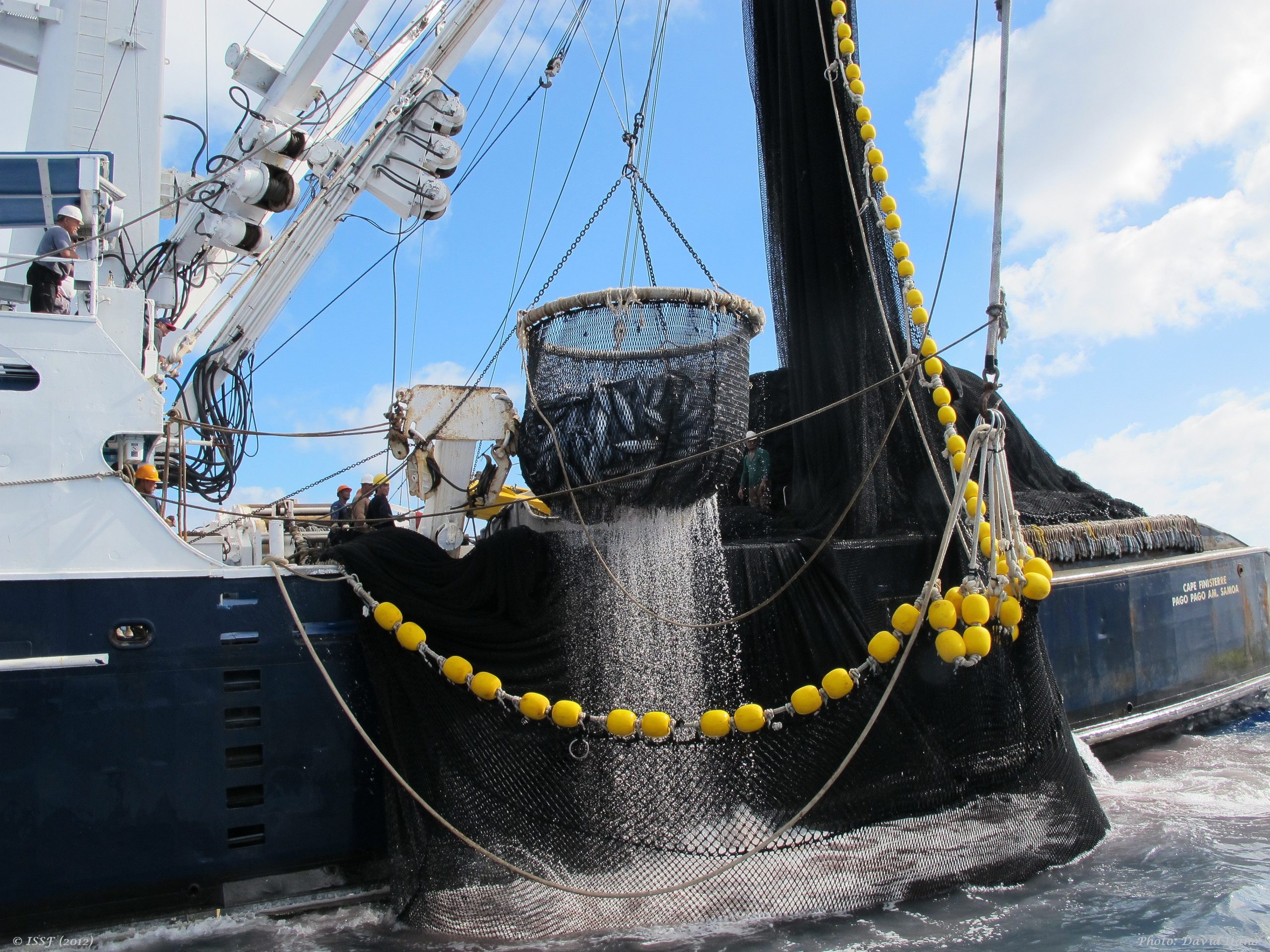1 de marzo de 2024


Author——————————-
Hilario Murua
Senior Scientist, International Seafood Sustainability Foundation (ISSF)
✉️
With 4.8 million tonnes caught annually, tuna are one of the world’s most popular and nutritious seafood species, fundamental to global food security and serving as an economic engine for many coastal communities. It is essential that the regional fisheries management organizations (RFMOs), charged with overseeing the world’s tuna fisheries, identify and implement tools for the long-term, sustainable management of global tuna resources.
Harvest strategies, also known as management procedures, are one such proven tool available to RFMOs. Yet these management frameworks are in place for only a handful of the 23 commercial tuna stocks. ISSF continues to advocate that tuna RFMOs establish harvest strategies for more tuna stocks—because closing this gap will help fisheries managers mitigate both the political pressures andclimate change impacts on global fisheries.
Understanding Harvest Strategies in Tuna Fisheries
Harvest strategies are a combination of monitoring, assessment, harvest control rules, and management actions designed to meet the stated objectives of a fishery. These elements together provide a pre-agreed approach for RFMOs to manage fisheries resources in a transparent, inclusive, and precautionary manner, allowing management actions to be adjusted automatically in response to changing tuna stock status indicators. For example, if an indicator shows an increase in abundance, the management response can be to increase the total allowable catch, and vice versa.
With harvest strategies in place, fisheries managers can address any “what if” scenario that arises regarding the biology and productivity of the tuna population or other characteristics of the fisheries. These strategies also can account for uncertainty related to biological factors, such as fish population growth and natural mortality. (See this infographic for a visual explanation.)
Most important, without harvest strategies, short-term objectives of RFMO-member nations that may not align to scientific advice—continuation of catches at too-high levels, for example—can hijack tuna RFMO negotiations. And the result can be a further worsening of stock status and failure to ensure long-term stock sustainability.
Because long-term management objectives are pre-agreed as part of harvest strategies, decision makers can transcend short-term concessions that tend to be political in nature—a common phenomenon in multi-stakeholder, multi-national processes like global fisheries management.
The Impact of Climate Change on Tuna Fisheries
It is widely accepted that harvest strategies are crucial to achieving sustainable and profitable tuna fisheries, and to meeting and maintaining critical sustainability standard certifications.
With sustainable management long into the future as our goal, it is also important to understand how harvest strategies can help tuna fisheries weather the impacts of climate change. Let’s first consider how it is affecting global tuna stocks, and then how harvest strategies can help mitigate such affects.
For tuna and other fisheries, scientific studies suggest that ocean temperatures will continue to increase due to climate change, impacting fish stock migration patterns, distribution, and productivity. Climate change also affects other species in marine ecosystems, and it changes ocean currents and oxygen levels. With less resilient fish stocks and shifts in tuna populations’ geographical distribution, fleet competition, access to resources, and fishing pressure may be exacerbated. And that scenario, in turn, has the potential to disrupt tuna-dependent economies, threaten food security, and increase the risk of both overfishing and illegal, unreported, or unregulated (IUU) fishing activities.
Indeed, climate change already is progressively and negatively affecting tuna stocks and their associated fisheries. In this context, harvest strategies become increasingly urgent. Developing harvest strategies that account for climate change’s impacts on tuna biology, productivity, and population shifts will be paramount to balance trade-offs between catches of targeted species and their long-term sustainability.
Moreover, annually monitoring harvest strategies’ effectiveness to identify rare and unforeseen events—a process known as exceptional circumstances—could help to issue timely alerts and spur subsequent actions related to climate change. In this sense, decision-makers will need to focus on medium- and longer-term time horizons in order to adapt the governance to such events.
While scientists continue their work to better understand tuna population dynamics under climate change, RFMO adoption of harvest strategies as an adaptive management solution generally remains an antidote to the unpredictability fisheries face.
Some Progress on Harvest Strategies
Tuna RFMOs can look to harvest strategies as an important tool to begin addressing the impact of climate change on tuna population abundance and distribution. And the good news is that RFMOs have been making some progress in this area. For example, last year in the Eastern Pacific Ocean, the region’s RFMO adopted a harvest strategy for North Pacific albacore tuna, including a harvest control rule, as well as interim reference points for skipjack tuna. In December 2023, fisheries managers in the Western and Central Pacific Ocean implemented comprehensive harvest strategies for Western Pacific skipjack and Northern albacore. (A full review of RFMO progress on harvest strategies is available here.)
Similar, more widespread progress is now urgently needed across all of the world’s tuna stocks, and ISSF is continuing to press for the accelerated adoption and implementation of harvest strategies in all tuna fisheries. By rallying our partnerships from the diverse sectors of industry, science, and the NGO community to this common cause, we can issue a powerful and united appeal for progress on this critical aspect of fisheries management.
Dr. Hilario Murua is a Senior Scientist at the International Seafood Sustainability Foundation (ISSF). Visit the ISSF website at www.iss-foundation.org to learn more about tuna fisheries sustainability.